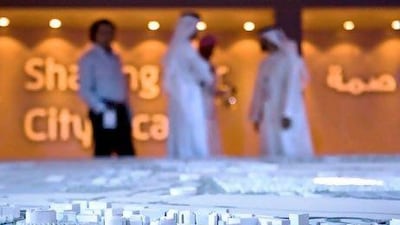The global financial downturn that took hold in 2008 reminded me of a saying by the venture capitalist Eugene Kleiner: "In a high wind, even a turkey can fly." It is when times are difficult that it becomes easier to differentiate the strong.
Recent unrest in the Middle East and North Africa (Mena) has made me revisit this saying. Political upheaval is weighing heavily on sentiment in a region which, until recently, enjoyed a reputation as a growth market of choice, buoyed by the investment potential offered by economic reforms. Until the current situation is satisfactorily resolved, the global investment community is likely to be cautious about the region. However, an exception to this is proving to be the UAE.
There have been numerous reports of multinationals relocating their offices and staff from various Mena countries to the UAE, as companies seek both personal and business security as well as advanced hard and soft infrastructure, without leaving this critical market altogether. This represents a major opportunity for our country, and could prove to be the boost needed to restore the growth momentum enjoyed by the UAE for almost four decades.
Political stability is not our only drawcard. Although the UAE, along with the rest of the world, suffered the effects of the downturn, its fundamentals remain strong. After its formation in 1971 and until 2008, the UAE experienced a dramatic and uninterrupted period of GDP growth, which rose from US$2.9 billion (Dh10.65bn) in 1971 to $261bn in 2008. Alongside investment in the economy, the leadership recognised the importance of investing in human capital, in particular, by improving the education and skills of Emirati nationals to ensure they took their rightful place in the domestic economy.
As a result of the country's active diversification policy initiated more than 10 years ago, oil currently comprises less than 40 per cent of GDP compared with most of the early years of the UAE. To achieve this, the Government channelled funds into property development, infrastructure, tourism, aerospace, heavy industry (both upstream and downstream), health care and education, as well as encouraging the growth of the private sector.
As the shocks of the global downturn reverberated in the UAE, the Government was quick to respond to bolster the domestic economy, providing deposit guarantees, Central Bank liquidity support, investment in infrastructure projects and other financial measures. These actions, coupled with a rebound in the oil price, the strength of the UAE's service-based economy, diverted regional capital, and continued infrastructure spending, will all help our GDP growth rate to recover further. This is evidenced in recent banking reports on the region, where revisions have been made to GDP growth forecasts of about 3 per cent for this year.
Over the years, the UAE has attracted high-calibre talent from across the region and farther afield. A significant proportion of this large and growing consumer class is that of expatriate Arabs from the Levant and North Africa. This cross-section of expatriates accounts for a significant amount of spending power, but they also see the UAE as a land of opportunity and stability.
As a stable and forward-thinking country in a politically delicate region, the UAE has historically prospered from regional instability, and property has been a key beneficiary of this. In recent years the Government has spent a lot of time and money modernising the infrastructure of the UAE, which has paved the way for growth in the property development sector. This has been evidenced by property being one of the largest components of the UAE's GDP.
The private property sector in the UAE is still relatively immature by global standards, as it is only in the past few years that expatriates have been able to buy properties in investment zones. Up until then, residents of the UAE would have been renting property when they traditionally might have been buying properties to live in. Then an influx of speculative investors distorted the property market, as properties were bought then sold quickly and for profit. This sales boom came to an end when liquidity evaporated during the downturn.
In recent weeks, there have been some positive early indicators in the UAE property market. A number of property sales transactions have started to come through, with sales predominantly driven by expatriates and investors who may be seeking a more stable investment environment for their money and families.
As international property investors gather for Cityscape Abu Dhabi this week, the first major conference in the region for the industry since the "Arab Spring" began, many questions will be raised regarding the risk profile of investing in the Mena region. I believe the investment case for the UAE has never been stronger as it becomes easier to differentiate the country's value proposition. As its infrastructure investment continues to grow and as the leadership goes from strength to strength, so too will its growth prospects.
Abubaker Seddiq al Khouri is the managing director of Sorouh, a leading master developer based in Abu Dhabi

